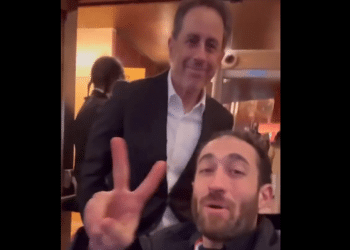Likud MK Galit Distel-Atbaryan, who says Facebook targeted her for her right-wing views, has introduced a bill to give citizens recourse should they find themselves out of favor with social networks.
Follow Israel Hayom on Facebook and Twitter
"The Social Networks Bill," in its explanatory section, says that while online networks like Facebook want to prevent undesirable phenomena such as radicalization and violence, "it seems that the removal of content and the blocking of users is done arbitrarily, without the users being given the opportunity to understand the reason for the blocking, and without the actual possibility of appealing it."
The bill requires social networks to clearly state their policies for removing content and blocking users by providing "an available response in the Hebrew language for the investigation of complaints" and to provide a way for users to query about removal policies.
The bill also clarifies when users can seek damages in court, permitting "litigation against the social networks operating in Israel under Israeli law, in order to prevent the situation of a legal vacuum in which damages are created without redress."
The proposed law is identical to one introduced by former Likud MK Amit Halevi in November 2020. Distal-Atbaryan decided to resubmit it.
"It's a very important law because what we see now is, on the one hand, privatization of the vehicles of speech, and on the other hand, monopolization of the vehicles of speech," Jerusalem-based attorney Itzhak Bam told JNS. Bam has built a reputation in Israel as an authority on free-speech issues, having represented many free speech cases in court.
Some argue social media networks are private companies and should be allowed to block whom they want, said Bam. However, he explained social media is an oligopoly, with a few companies, like Facebook and Twitter, controlling most of the market.
"If you have two or three major players that provide the playground and those players virtually control your ability to exercise your freedom of speech, and all the discussion of public issues is now happening on social media, blocking speakers on social media affects the democratic process," he said.
"If you had 1,000 different companies competing against each other, you have no justification for the government to step in. But when it's an oligopoly that rules the social-media market and the market affects civil rights, there should be a possibility for citizens, for a private person, to sue them if they silence him," said Bam.
Whether or not social media is specifically targeting those with right-wing views isn't possible to know for certain, he said, because only the companies have that information. The information "is in the hands of Facebook and Facebook will never release it."
Distal-Atbaryan is certain that only one side of the discourse is in social media's crosshairs. At a June 21 Knesset meeting she organized for Israeli citizens, public figures and fellow Knesset members, she described how she had been warned by Facebook a week earlier that she had violated its "community standards" in a post two weeks beforehand. Her account was temporarily restricted.
JNS reached out to Facebook for comment, but the company didn't reply.
The post that led to the warning was a call in early June to protest at the home of Yamina MK Nir Orbach to convince him to vote against the Bennett-Lapid government. The post included Orbach's home address, which Distal-Atbaryan was informed was what led to the warning.
"What's surprising in this story is that both Left and Right protested in front of the home of Nir Orbach. The posts that advertised the Left's protest were not blocked. The posts that advertised the Right's protest were blocked," she said. "Here's an incident in which it's possible to see it in an almost mathematical way, almost scientific – the same content, blocked on the Right, continuing to run on the Left. This is no longer speculation. … This is real."
Avi Abelow, CEO of Israelunwired.com and Pulseofisrael.com, said that he favored any law that would make social media companies liable for their censorship. On July 1, he told JNS that everyone associated with his business had their personal accounts disabled. "I never received any explanation why we were all terminated. It wasn't like a notice of 'you're in Facebook jail' or 'this post violates this' – nothing. It's just 'you're suspended and you have 30 days to appeal. For what? No reason."
On July 7, he informed JNS that his account and those of his staff had been reinstated. Again, he says, "no reason."
Reprinted with permission from JNS.org
Subscribe to Israel Hayom's daily newsletter and never miss our top stories!




